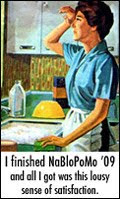It's not.
The non-apology from a Cooks Source editor, as re-published by Consumerist:
Yes Monica, I have been doing this for 3 decades, having been an editor at The Voice, Housitonic Home and Connecticut Woman Magazine. I do know about copyright laws. It was "my bad" indeed, and, as the magazine is put together in long sessions, tired eyes and minds somethings forget to do these things.
But honestly Monica, the web is considered "public domain" and you should be happy we just didn't "lift" your whole article and put someone else's name on it! It happens a lot, clearly more than you are aware of, especially on college campuses, and the workplace. If you took offence and are unhappy, I am sorry, but you as a professional should know that the article we used written by you was in very bad need of editing, and is much better now than was originally. Now it will work well for your portfolio. For that reason, I have a bit of a difficult time with your requests for monetary gain, albeit for such a fine (and very wealthy!) institution. We put some time into rewrites, you should compensate me! I never charge young writers for advice or rewriting poorly written pieces, and have many who write for me... ALWAYS for free!
It doesn't matter where or when the work was published, it's never OK to borrow or lift work without permission.
In fact, Gaudio made this point easy to prove on her LiveJournal, by linking to the University Maryland University College Web site. Here's the boring facts about the Internet:
Copyright and Electronic Publishing
- The same copyright protections exist for the author of a work regardless of whether the work is in a database, CD-ROM, bulletin board, or on the Internet.
- If you make a copy from an electronic source, such as the Internet or WWW, for your personal use, it is likely to be seen as fair use. However, if you make a copy and put it on your personal WWW site, it less likely to be considered fair use.
- The Internet IS NOT the public domain. There are both uncopyrighted and copyrighted materials available. Assume a work is copyrighted.
Tips for the Internet
- Always credit the source of your information
- Find out if the author of a work (e.g., video, audio, graphic, icon) provides information on how to use his or her work. If explicit guidelines exist, follow them.
- Whenever feasible, ask the owner of the copyright for permission. Keep a copy of your request for permission and the permission received.
Glad we could clear that up.
If this happens to you, contact the publication/thief. (Plagiarism happens everywhere, at the hands of all kinds of people.) Remind the publisher that you have rights, darn it, and if you are compensated and/or the piece isn't removed, you will look into other action.
Feel free to threaten additional action, and if necessary, feel free to follow up on your threats.
(Don't let a story like this one scare you, or prevent you from blogging!)
Additional Information:
Magazine Copies Entire Story From Web, Tells Writer She Should Pay Them For Publishing It, Consumerist
Copyright Infringement and Me, Gaudio's LiveJournal
Copyright and Fair Use in the Classroom, on the Internet, and the World Wide Web, UMUC Library Services




No comments:
Post a Comment